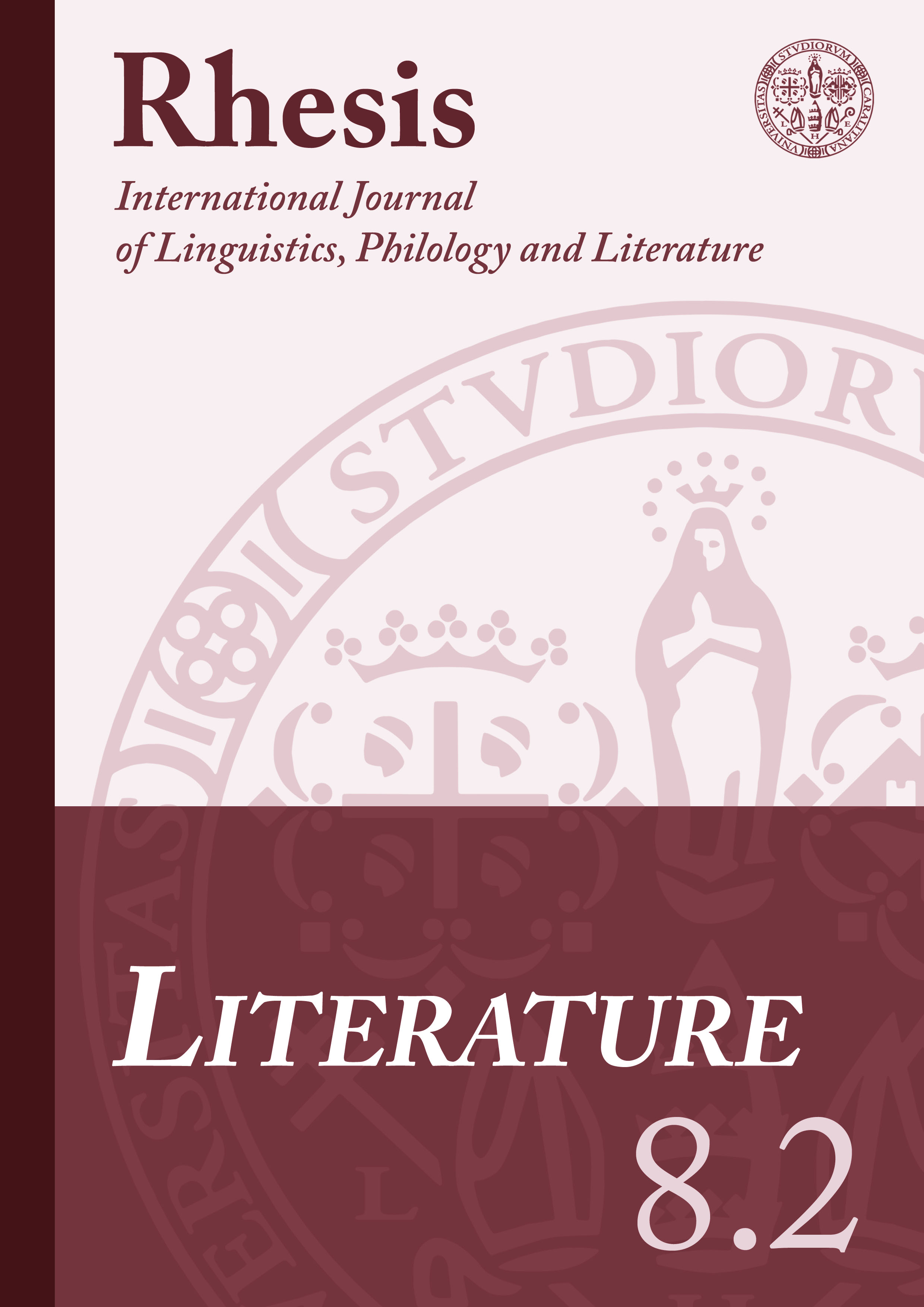Nel magazzino della evaporazione. Intertestualità apocalittica tra Guido Morselli e Antonio Porta
Abstract
After having thoroughly reviewed (La scomparsa dell’umanità, «Il Giorno», 2 March 1977) Guido Morselli’s brilliant and visionary novel Dissipatio H.G. (Milan, Adelphi, 1973), Antonio Porta publishes his prophetic Il re del magazzino (Milan, Mondadori, 1978). Notwithstanding some minor differences, there are so many similarities between these two books that they can be considered elements of a diptych. Indeed, both are set in a time in which the earth has been turned into a desert by a mysterious event: just with a whimper, without bursts or explosions, humans have disappeared. The only survivor tries his best to cope with this catastrophe and starts to write as a means of finding solace and to preserve some memories of what the world used to be. But perhaps, after all, life on earth without humans is not so bad.
This research aims at detecting persisting forms of images and differences between these novels, focusing on their respective representations of apocalypse. When apocalypse is deprived of any teleological intent, it assumes the same value as an epiphany. Framed within such a dystopic perspective, both Morselli’s and Porta’s works express their judgement against a present which is also our present.
Downloads
References
ELIOT, Thomas Stearns, Opere 1904-1939, a cura di Roberto SANESI, Milano, Bompiani, 1992.
FERRETTI, Giancarlo, “Il manoscritto ritrovato da Porta”, «Rinascita», (21 luglio 1978).
FRUTTERO, Carlo, SOLMI, Sergio (a cura di), Le meraviglie del possibile, Torino, Einaudi, 1959.
MORSELLI, Guido, Il comunista, Milano, Adelphi, 1976.
MILANO, Paolo, “Voglio il dopo qui e subito”, «L’Espresso», (18 giugno 1978).
MORSELLI, Guido, Proust o del sentimento, Milano, Garzanti, 1943; rist. a cura di Marco PIAZZA, Torino, Ananke, 2007.
MORSELLI, Guido, Realismo e fantasia. Dialoghi, Torino, Fratelli Bocca, 1947; rist. anastatica Varese, NEM, 2009.
MORSELLI, Guido, Dissipatio H.G., Milano, Adelphi, 1977; rist. Milano, Adelphi, 2016.
PELGREFFI, Igor, “Dissipatio H.G. di Guido Morselli, fra utopia e distopia”, in Percorsi di critica dell’immaginario politico, a cura di Gianvito BRINDISI, Kayak, Tricase, 2015, pp. 101-117.
PORTA, Antonio, Partita, Milano, Feltrinelli, 1967.
PORTA, Antonio, “Santa Sede a Zagarolo. Roma un anno prima del Duemila”, «Il Giorno», (4 ottobre 1974).
PORTA, Antonio, “Un caso letterario che fa meditare. Il rifiuto di Morselli”, «Il Giorno», (6 settembre 1975).
PORTA, Antonio, “Un inedito di Guido Morselli: Il comunista. La storia reinventata. La esplosione postuma di un autore di eccezione, lungamente respinto dalla nostra società letteraria con luciferina sicumera”, «Il Giorno», (3 marzo 1976).
PORTA, Antonio, Il re del magazzino, Milano Mondadori, 1978; rist. Milano, Lampi di Stampa, 2008.
PORTA, Antonio, “La scomparsa dell’umanità”, «Il Giorno», (2 marzo 1977).
SASSO, Francesco (a cura di), “Antonio Porta legge Guido Morselli. Quattro recensioni”, «Retroguardia. Quaderno elettronico di critica», 26 (2010), pp. 1-13, disponibile sul sito:
SICILIANO, Enzo, “E adesso i cannibali vivono in mezzo a noi”, «Il Corriere della Sera», (9 aprile 1978).
TERRENI, Alessandro, TURCHETTA Gianni (a cura di), Mettersi a bottega. Antonio Porta e i mestieri della letteratura, Atti del Convegno, Università degli studi di Milano, Milano, 10 dicembre 2009, Roma, Edizioni di Storia e Letteratura, 2012.
TROCINO, Alessandro, “Una definitiva irreperibilità. Dissipatio H.G. di Guido Morselli”, «Nuovi Argomenti», 72 (ottobre-dicembre 2015), disponibile sul sito:
VERDINO, Stefano, “Prefazione”, in Antonio PORTA, Il Re del magazzino, Genova, San Marco dei Giustiniani, 2003, pp. 7-13.
VILLANI, Paola, Il “caso” Morselli. Il registro letterario filosofico, Napoli, ESI, 1998.
VILLANI, Paola, “L’assalto alla Gran Chiesa Idealistica, Morselli, Tristano e il Fiore del deserto”, «Biblioteca di Rivista di Studi italiani», XXVII/2 (dicembre 2009), pp. 23-57.
VOLPONI, Paolo, Il pianeta irritabile, Torino, Einaudi, 1978.



